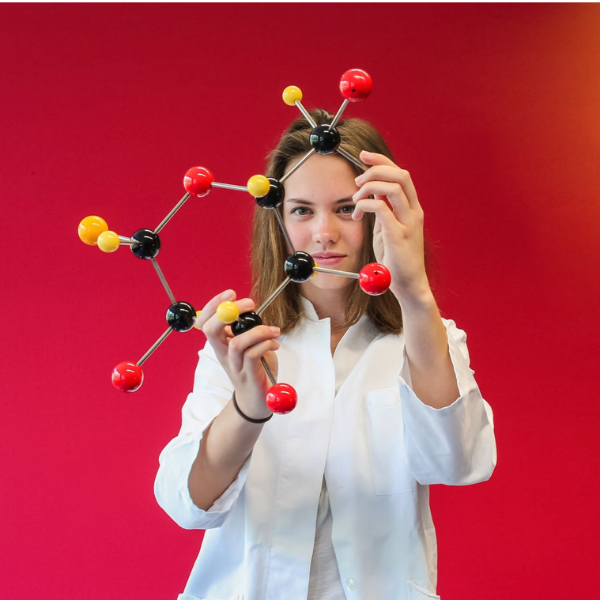Donate and support INFORM
One in five children suffers a relapse after initially successful treatment and then, standard therapies no longer work. The cancer cells are then often already resistant to the usual treatment methods and there is little prospect of a cure. Physicians then usually have very little time to fight the cancer again, often only a few months on average. The INFORM (INdividualized Therapy FOr Relapsed Malignancies in Childhood) program coordinated at KiTZ aims to provide children with cancer worldwide with new treatment options as quickly as possible if the cancer returns or there are no established therapies.
In the INFORM program, scientists at KiTZ examine the respective tumor for its weak points using molecular analysis in order to identify possible specific points of attack. In this way, they search for an innovative, tailor-made therapy that is individually adapted to the tumor of the child in question. For many of those affected, INFORM opens up a second chance of recovery. In a second step, the findings from these individualized treatment trials are used to develop studies that make new therapies available worldwide as standard treatment.
Your donation helps
- to develop new diagnostic options in INFORM in order to be able to search even better for a further effective therapy for children and young people with a high-risk tumor or a relapse.
- to make these therapies accessible to children and young people with cancer worldwide in new studies.
Thank you for your support!
Donation account "INFORM - A second chance"
Recipient: KiTZ
Bank institute: Sparkasse Heidelberg
IBAN: DE39 6725 0020 0009 3471 00
BIC: SOLADES1HDB
Purpose: INFORM
or:
Recipient: DKFZ
Bank institute: Sparkasse Heidelberg
IBAN: DE98 6725 0020 0005 0000 50
BIC: SOLADES1HDB
Purpose: INFORM
If we are allowed to issue you with a donation receipt, please include your full address in the reference field of your bank transfer. Donation receipts are issued in accordance with the German model.
In INFORM, patients receive a precise analysis of the altered genetic information of their tumor at the time of relapse. The tumour material obtained is characterized as precisely as possible using state-of-the-art molecular genetic methods. The molecular changes that the tumor causes in the cells are like the "fingerprint" of a criminal. This fingerprint is used to convict the "perpetrator", i.e. the tumor can be correctly classified and diagnosed. This is actually difficult in some cases, for example if the tumor is unusually localized or if different stages of a tumor look very similar under the microscope. Once the "culprit" has been correctly identified, the prerequisite is created for the use of a targeted drug against the individual tumor.
How does drug testing work?
In addition to the molecular tumor analyses, the tumor sample is subjected to drug testing whenever possible in order to specify the therapy recommendation and identify an effective drug. The tissue samples from the young patients grow into mini-tumors in the laboratory. Around 80 drugs are then tested on these mini-tumors, which are clinically available and can therefore be used immediately for treatment.
It takes a total of four weeks from sample receipt for all INFORM data to be available and evaluated by an interdisciplinary tumor board made up of experts in paediatric oncology, human genetics, bioinformatics, molecular biology and (neuro-)pathology. The attending physician also takes part in this process so that he or she can then make a recommendation to the affected families. The recommendation can be, for example, a therapy or the patient's participation in a clinical trial. If this is not possible, individual treatment trials can also be considered on the basis of the results. In some cases, the INFORM results may also lead to a correction of the diagnosis or identify hereditary forms of cancer that are associated with a familial risk, which may be relevant for treatment decisions.
INFORM pools the currently available pediatric oncology expertise.
To date, INFORM is the only project in Germany and one of the few in Europe in which children's cancer genomes are decoded within a few weeks and patients can benefit directly from the results. INFORM therefore receives samples not only from Germany, but from 100 centers in 12 countries. At the same time, INFORM relies not only on the expertise of the 40 local employees working for INFORM in Heidelberg. Under the umbrella of the Society for Pediatric Oncology and Hematology (GPOH), 18 study groups and over 50 recruitment centers throughout Germany are involved in the INFORM registry. In INFORM, all currently possible technical, logistical, scientific and medical options are being exploited to give every single patient in a hopeless situation a chance of an effective therapy after all. In a network comprising twelve European countries and Israel, INFORM brings together the pediatric oncology expertise currently available in the fight for every child suffering from cancer. 2,500 children and adolescents have already received a molecular analysis of their tumor and an individual therapy recommendation through INFORM.

